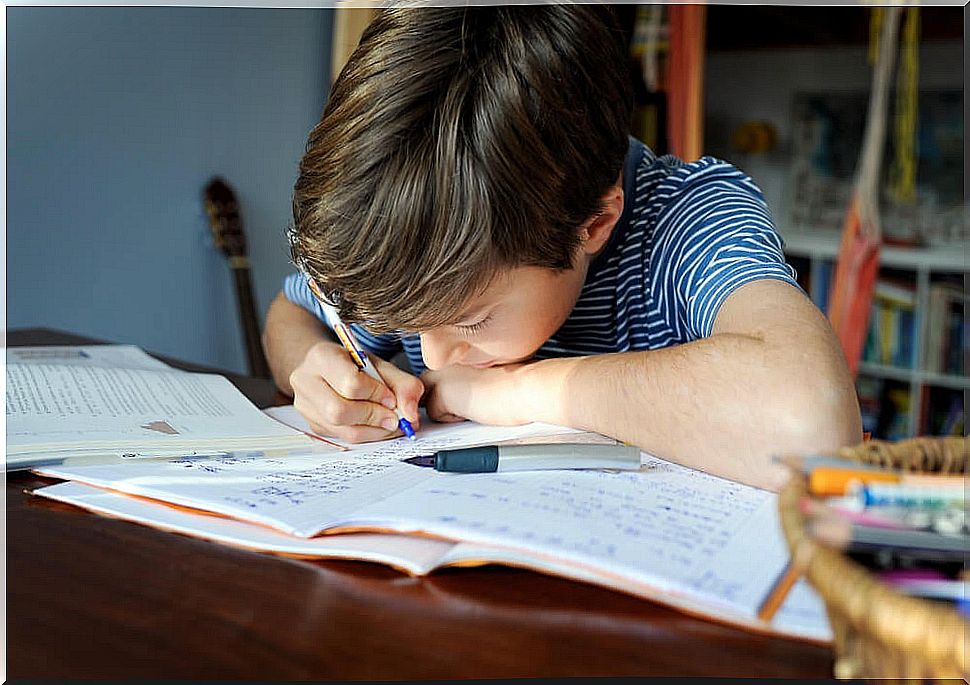Does My Child Have Good Study Habits?

Having good study habits is essential to achieve optimal school performance. But these habits are not acquired innately, but it is necessary to put them into practice until they have been fully assimilated and are part of the study routine.
This allows children and young people to have sufficient skills to study independently and effectively. In fact, it must be taken into account that academic success depends, mainly, on effort, work and perseverance.
Does my child have good study habits?
To see if your child has good study habits, it is necessary to look at six aspects:
- General attitude towards study.
- Place of study.
- Physical state
- Organization of the study.
- Study techniques.
- Carrying out exams and assignments.

Next, we explain what each of them consists of.
6 keys to identifying good study habits
General attitude towards study
It refers to the predisposition, interest and motivation that the student shows towards the study. That is to say, the child or young person must have solid reasons that lead him to want to study, being he and not others (his parents, teachers, etc.) the one who decides to put all his effort into learning and passing the different subjects.
Place of study
It is the physical place where all the process related to the study takes place. The conditions of the same can determine the concentration and the performance of the student. Thus, the ideal is that said place meets the following characteristics:
- Always in the same.
- With good lighting.
- Correctly ventilated.
- No external distractions.
- With a comfortable temperature.
- In which there is a table and a chair with a back.
Physical state
It refers to the physical conditions in which the student is, which directly affects school performance. To maintain good physical condition as a student, it is advisable to:
- Take breaks during study: they are important to relax and concentrate better, being the most productive study time.
- Sleep between 7 and 8 hours: it is essential to have a good daytime functioning. Thus, it can be said that sleep is a key factor in learning.
Study organization
It refers to the planning and structuring of study time. To organize properly you must:
- Have an agenda to record exams, homework and assignments.
- Spend a few minutes every day studying or reviewing the subjects.
- Determine a stable study time and place.
- Take into account the number of subjects and the difficulty of each one of them.

Study techniques
They are learning strategies that facilitate the task of studying. Some of them are:
- Take some good notes.
- Understand what you read.
- Underline.
- Summarize and synthesize the agenda.
- Prepare diagrams or concept maps.
- Use mnemonic rules for memorization.
- Draw pictures that represent the lesson.
Taking exams and assignments: fundamental in the development of good study habits
Taking exams and assignments is also part of the study habits. In fact, normally, this type of test is used to assess the entire school learning process and it is necessary to know how to pass them successfully. In this sense, to face an exam, it is convenient to follow these steps:
- Bring all the necessary material for its execution: pen, pencil, rubber, ruler, calculator, etc.
- Pay attention to the teacher’s instructions.
- Read the questions carefully.
- Consult the teacher with doubts.
- Control your nerves and start with the question you know best.
On the other hand, to carry out work, the following guidelines must be met:
- Make an initial outline or draft.
- Make a clear presentation.
- Do not make spelling mistakes.
- Cite the sources of information.










